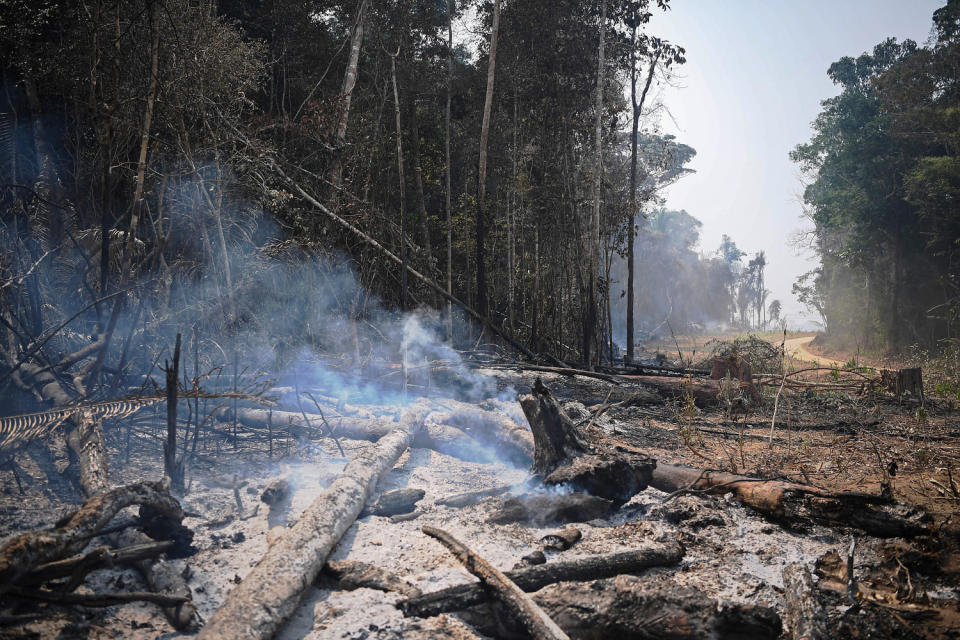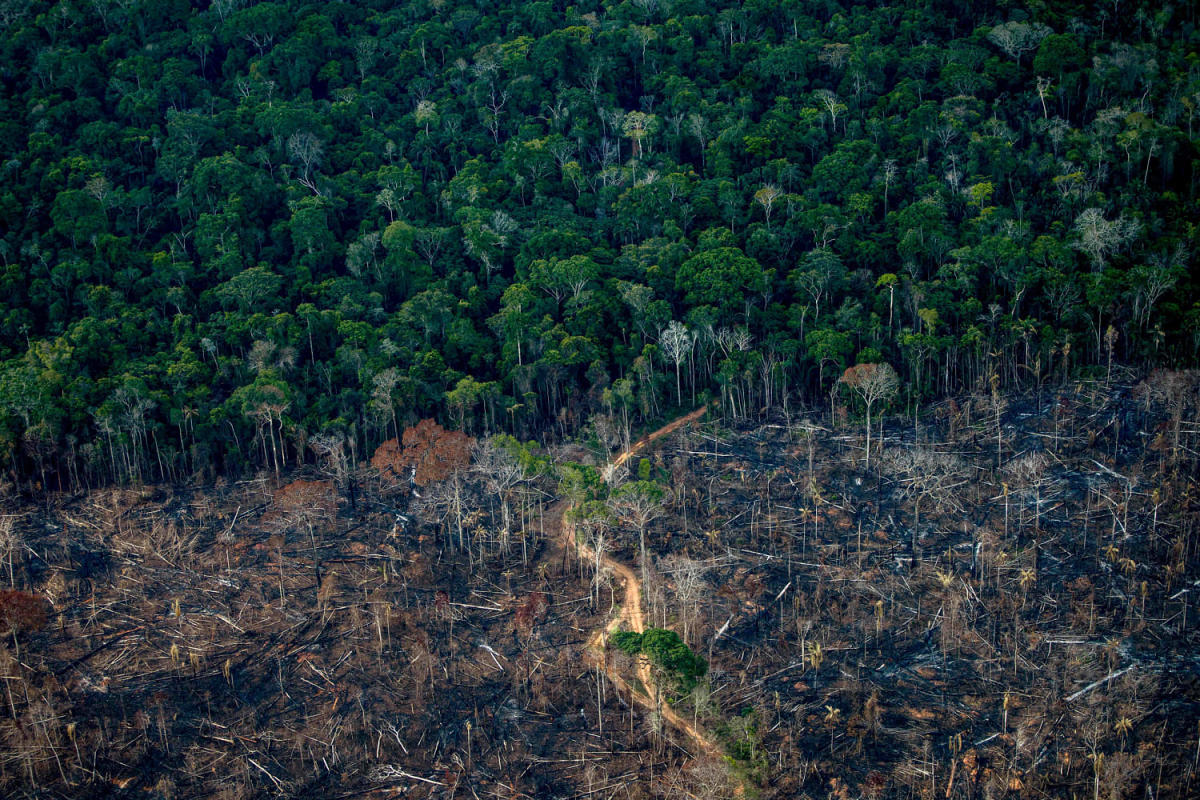Wildfires, deforestation and global warming could permanently destroy the water cycle that sustains parts of the Amazon rainforest if action is not taken in the coming decades, according to a study published Wednesday in the journal Nature.
The study suggests that 10% to 47% of the landscape is at risk of transitioning away from rainforest by 2050 if warming and rates of deforestation aren’t dramatically curbed.
“So many stressors are intensifying — climatic ones and land use stressors — when you combine these, they all end up causing water stress in the forest,” said Bernardo Flores, a lead author of the paper who is an ecologist and post-doctoral researcher at the University of Santa Catarina, in Florianópolis, Brazil. “It can reach a point where the forest is no longer capable of persisting.”
The Amazon contains about 10% of the world’s land-based biodiversity and stores incredible amounts of carbon in its dense trees. The rainforest is a carbon sink, meaning it stores more carbon than it produces. Pushing the rainforest past its limit could accelerate climate change and have terrible consequences for local communities, including Indigenous groups who depend on it.
Flores said that the changes outlined in the study are already happening but that he was optimistic they could be slowed or even halted.
“I’m hoping in this paper, our findings will show the urgency if we don’t act within the next 30 years,” Flores said.
The study focuses on overlapping stressors to the Amazon, namely from warming temperatures, extreme droughts, deforestation and fires. It describes how those factors could combine to break down the Amazon’s water and carbon cycles.
“The Amazon is massive and maintains its own water cycle,” said Ernesto Alvarado, a research associate professor at the University of Washington’s School of Environmental and Forest Sciences, who was not involved in the study. “If the balance breaks, it’s a major problem.”
If deforestation, wildfires, droughts and climate change reduce the amount of forested land that absorbs water, less moisture would be available to the atmosphere from plants, reducing the amount of rain to sustain the landscape.
About 15% of the Amazon has already been lost, Flores said.

“If we lose 10% more of the forest, we will pass the critical threshold we identified in accumulated forest loss and deforestation,” Flores said. “We will have 25% of the Amazon that won’t be forest anymore — and this could trigger a large-scale tipping point.”
Alvarado, who in the past has studied how resilient the Amazon forest is after disturbance, said he’s visited areas that were once rainforests but now look like the U.S. Midwest.
“This paper resonates,” he said.
Previous research suggested the Amazon could tip into an unstable state when global temperatures rise 2-6 degrees Celsius above pre-industrial averages.
“The studies are broadly consistent,” Tim Lenton, a professor at the University of Exeter in the United Kingdom and founder of the Global Systems Institute, said in an email. “What is great about the new study is it unpacks in more spatial detail than previous work which locations are at most risk and from which drivers, by 2050.”
The new study suggests that limiting warming to 1.5 degrees Celsius — the goal of the 2015 Paris climate agreement — would provide enough safety margin to prevent ecosystems from transitioning away from forest.
Losing a large portion of the Amazon could turn a key carbon sink into a source of emissions, as wildfires burn and plants and animals decompose, no longer able to survive.
“Many aspects of these transitions are irreversible — many species will go extinct and never come back,” Flores said.
This article was originally published on NBCNews.com

Daisy Hips is a science communicator who brings the wonders of the natural world to readers. Her articles explore breakthroughs in various scientific disciplines, from space exploration to environmental conservation. Daisy is also an advocate for science education and enjoys stargazing in her spare time.








/cdn.vox-cdn.com/uploads/chorus_asset/file/24402139/STK071_apple_K_Radtke_03.jpg)